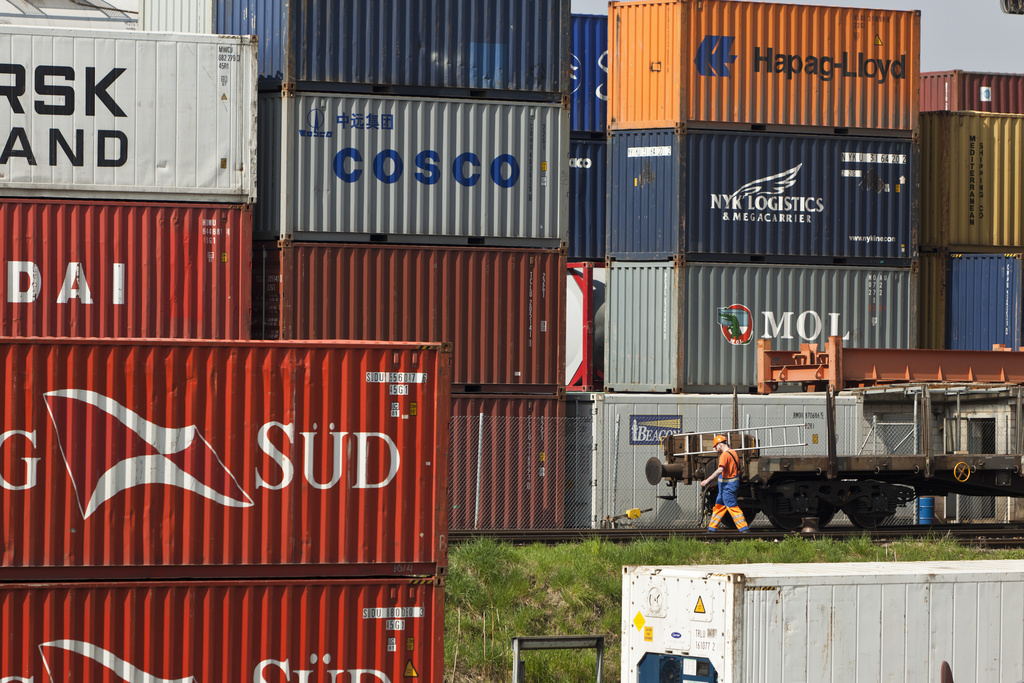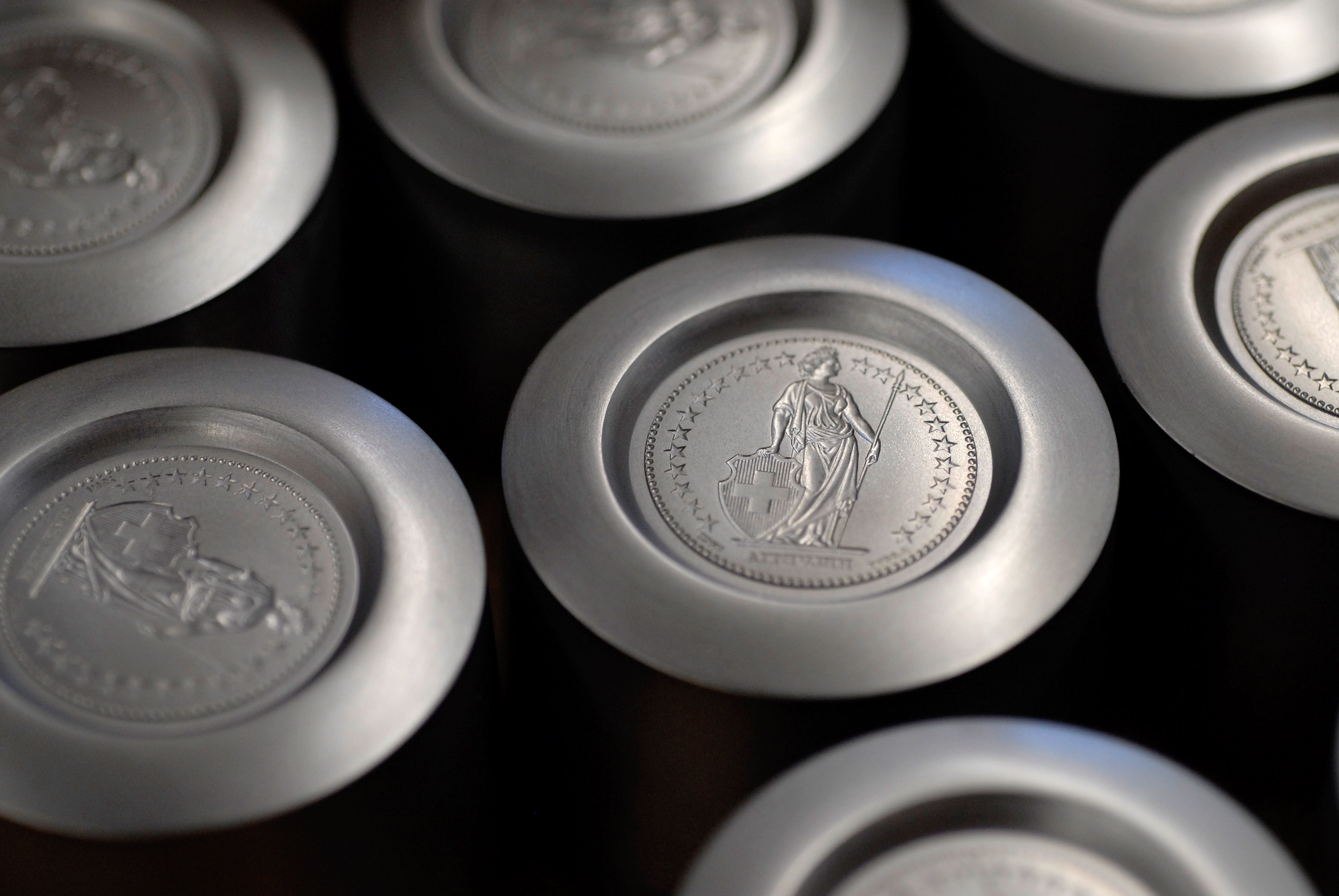Economy gets two billion franc support

The Swiss government has decided to allocate SFr2 billion ($2.5 billiion) to support the economy and mitigate the effect of the strong franc.
“The government has taken a bold and impressive step,” Economics Minister Johann Schneider-Ammann told journalists on Wednesday after announcing the measures.
The main beneficiaries will be the export economy and tourism, he said.
In a press release the government said that it was aware that the sum involved is very high. It said the purpose was to “strengthen the sectors that have been especially badly hit by the bad exchange rate situation, and to prevent the relocation of jobs abroad”.
Regarding the strength of the franc, the cabinet had “noted the latest intervention of the Swiss National Bank (SNB)”, and supported its aim of countering the over-valuing of the Swiss currency.
On Wednesday morning the bank stepped up its measures to control the rise of the franc, but did not intervene directly, which disappointed the markets and strengthened the franc against both the euro and the dollar.
However, Finance Minister Eveline Widmer-Schlumpf told the same media conference that if the SNB wanted to institute capital controls, it would have to take any decision in partnership with the government.
Details to come
The packet of measures is to be put to the autumn session of parliament for approval.
The precise nature of the measures is still open: the details are now to be elaborated by a working group led by the State Secretariat of the Economy (Seco).
The aims include a temporary reduction of costs, a strengthening of innovation and targeted improvements in the long term economic conditions.
The package will be financed from the expected 2011 budget surplus, which is currently predicted to be about SFr2.5 billion. However, the government has made it clear that the package will not exceed SFr2 billion.
Mortgage bubble
The government noted that one result of the advantageous interest rate was that Swiss banks had been giving higher credit to homebuyers. The SNB’s recent measures against the strong franc had had the undesirable side effect of strengthening this trend.
Furthermore, competition between lenders had in some cases led them to be less strict about the conditions for granting mortgages.
Stricter requirements for a stronger capital base are to be introduced to counter this trend. The finance ministry wants to strengthen the banks’ ability to withstand risks arising from excessive credit growth by introducing an “anti-cyclical capital buffer”, an obligation for the banks to hold temporarily increased equity when the credit situation requires it. The ministry, the financial watchdog Finma and the SNB would be involved in deciding when this buffer would be needed and when it could be removed.
Other measures announced on Wednesday include strengthening of action against cartels in order to improve competition, and better monitoring of prices, including discussions with producers and wholesalers to ensure that exchange rate benefits are passed on to customers.
Party reaction
The main political parties largely welcomed the new measures, although some said they were being scattered too widely.
Schneider-Amman’s centre-right Radical party said it was entirely satisfied, and would support measures presented to parliament, as long as they had clear targets, kept debt in check and strengthened competition in the long term.
The leader of the centre-right Christian Democrats, Christophe Darbellay, told French-language radio that while he welcomed the measures, he was cautious about how they would be implemented in practice, and warned against “throwing money out of the window”.
The centre-left Social Democrats welcomed the planned moves against cartels and better price monitoring. But the party was less enthusiastic about the measures to help the tourism and export industries, saying that businesses should not profit from state aid and at the same time cut salaries and staff.
For its part, the right-wing People’s Party called for tax reductions to increase competitiveness in the long term, more flexibility in the job market, and fewer administrative and bureaucratic demands.
Welcome from business
From outside party politics there have been mixed reactions to the government’s plans.
The Swiss Business Federation, economiesuisse, welcomed the fact that the government was now taking action. Director Pascal Gentinetta told the Swiss News Agency that the sum was “acceptable and financially bearable”.
He said he hoped the sectors that had been worst hit would profit most. But he called for better conditions for business as a whole in the long term, including tax reductions.
A spokeswoman for Switzerland Tourism, the Swiss tourism board, said it was “very happy” about the decision, but warned that money was not the cure for everything, and called for such measures as lower social security payments and a drop in VAT.
Disappointment
The Swiss Federation of Trade Unions (SGB) expressed disappointment that the government had not tackled the problem of the strong franc “at the root” by introducing a minimum exchange rate of SFr1.40 to the euro.
While welcoming the fact that the government had decided to act at all, SGB chief economist Daniel Lampart said some of the money should have gone to support pension funds.
The Trade Union umbrella organisation Travail Suisse said only businesses which had made losses because of the strong franc should profit from the new money: the government should subsidise their wage costs.
On the exchange markets the franc rose after the government announcement, changing at 1.14 to the euro. Earlier in the day the euro had been worth SFr1.15.
The Swiss franc is a so-called “safe haven” currency, which means that investors and speculators buy it when other currencies, including the euro and the dollar, are under pressure.
The franc has gained about 25 per cent in value against the euro and the dollar over the past four years.
The Swiss National Bank has emphasised that it does not pursue an exchange rate target, but consistently bases its monetary policy on its legal mandate.
This mandate stipulates that “the SNB is required to ensure price stability, while taking due account of economic developments”.
Starting in March 2009 the SNB intervened in currency markets. But after pumping in 15 per cent of GDP in May 2010 to little effect as the Swiss franc surged during the first round of the Greek debt crisis, it dropped them in June 2010.
These forays led it to a loss of SFr21 billion last year, its biggest ever, and its chairman, Philipp Hildebrand, has faced calls to resign.

In compliance with the JTI standards
More: SWI swissinfo.ch certified by the Journalism Trust Initiative















You can find an overview of ongoing debates with our journalists here . Please join us!
If you want to start a conversation about a topic raised in this article or want to report factual errors, email us at english@swissinfo.ch.